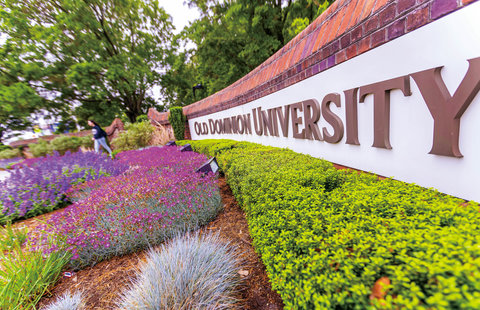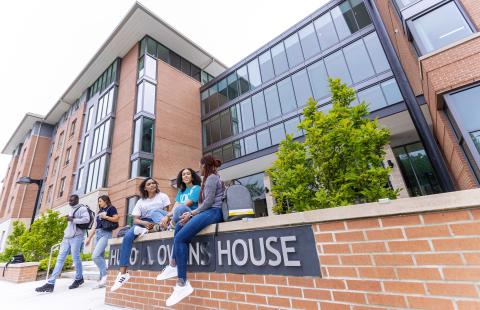The master’s program in Secondary Education, Teaching English as a Second Language (TESOL) concentration is for individuals who hold an undergraduate degree and wish to earn a Master of Science in Education degree and qualify for a Virginia Teaching license for grades K-12 in English as a Second Language. The program emphasis is teaching English to speakers of other languages.
Program Highlights
-
Supervised practicum (at your local school district)
-
Affordable tuition
-
NCATE accredited
Careers
Check out these ideas from ODU's Center for Career & Leadership Development and the Occupational Information Network (O*NET). A median salary is a midpoint of what people typically earn—half of those surveyed earned above the median salary, and half earned below.
Middle School Teachers, Except Special and Career/Technical Education
Teach students in one or more subjects in public or private schools at the middle, intermediate, or junior high level, which falls between elementary and senior high school as defined by applicable laws and regulations.
Secondary School Teachers, Except Special and Career/Technical Education
Teach students in one or more subjects, such as English, mathematics, or social studies at the secondary level in public or private schools. May be designated according to subject matter specialty.
Adult Basic and Secondary Education and Literacy Teachers and Instructors
Teach or instruct out-of-school youths and adults in remedial education classes, preparatory classes for the General Educational Development test, literacy, or English as a Second Language. Teaching may or may not take place in a traditional educational institution.
Elementary School Teachers, Except Special Education
Teach students basic academic, social, and other formative skills in public or private schools at the elementary level.
Alumni Careers
Requirements
An application for graduate studies and official transcripts must be submitted by the appropriate deadline for admission. Under certain circumstances, applicants who do not fully meet the requirements for regular admission to the program may be admitted on a provisional basis subject to conditions specified by the graduate program director. Requirements include:
-
Earned a bachelor's degree from an accredited college or university
-
A cumulative undergraduate GPA of 2.80 or higher
-
Qualifying ACT, SAT, and/or Praxis testing scores
Featured Courses
Provides students with an understanding of historical, philosophical, economic, and sociological issues in American education, their effect on student achievement, and the impact of social change on existing institutions. Includes the development of instruction based on assessment data including the use, construction, interpretation, and analysis of valid assessments. A 30-hour observation/participation experience is required in an appropriate prek-6, 6-8, or 6-12 grade level. Prerequisites: graduate standing.
This course is designed to give a thorough overview of human development from birth through adolescence and to develop an understanding of what impact physical, social, emotional, and intellectual development may have on the student, the learning environment, and instructional decisions. This course provides an advanced overview of current research and theory in human growth and development and their applications to the classroom. Throughout the course, issues of diversity as it applies to economic, social, racial, ethnic, and religious characteristics will be explored; developmental issues related to giftedness or disability and the impact of family disruptions, child abuse, and substance abuse will be addressed within the context of each topic.
This course addresses the connections between language and culture both in terms of the ways in which language may encode aspects of culture similarly or differently as well as how cultural assumptions are often made based on linguistic differences across cultures. Readings and discussions also address the effects of culture on intercultural communication.
Cost of Attendance
We believe in providing students with transparent and accessible information about the cost of attendance.
Review the estimated tuition rates for the 2024-25 academic year (subject to change). Other fees are assessed for special services and certain academic programs. Non-resident rates are charged for anyone who is not a current Virginia resident, including international students.
Ways to Fund Your Degree
There are a few ways for you to save on the cost of attending Old Dominion University, including scholarships, assistantships, and student loans. For more details about financial aid at Old Dominion, visit the Financial Aid Office page.
Take the Next Step
Contact







